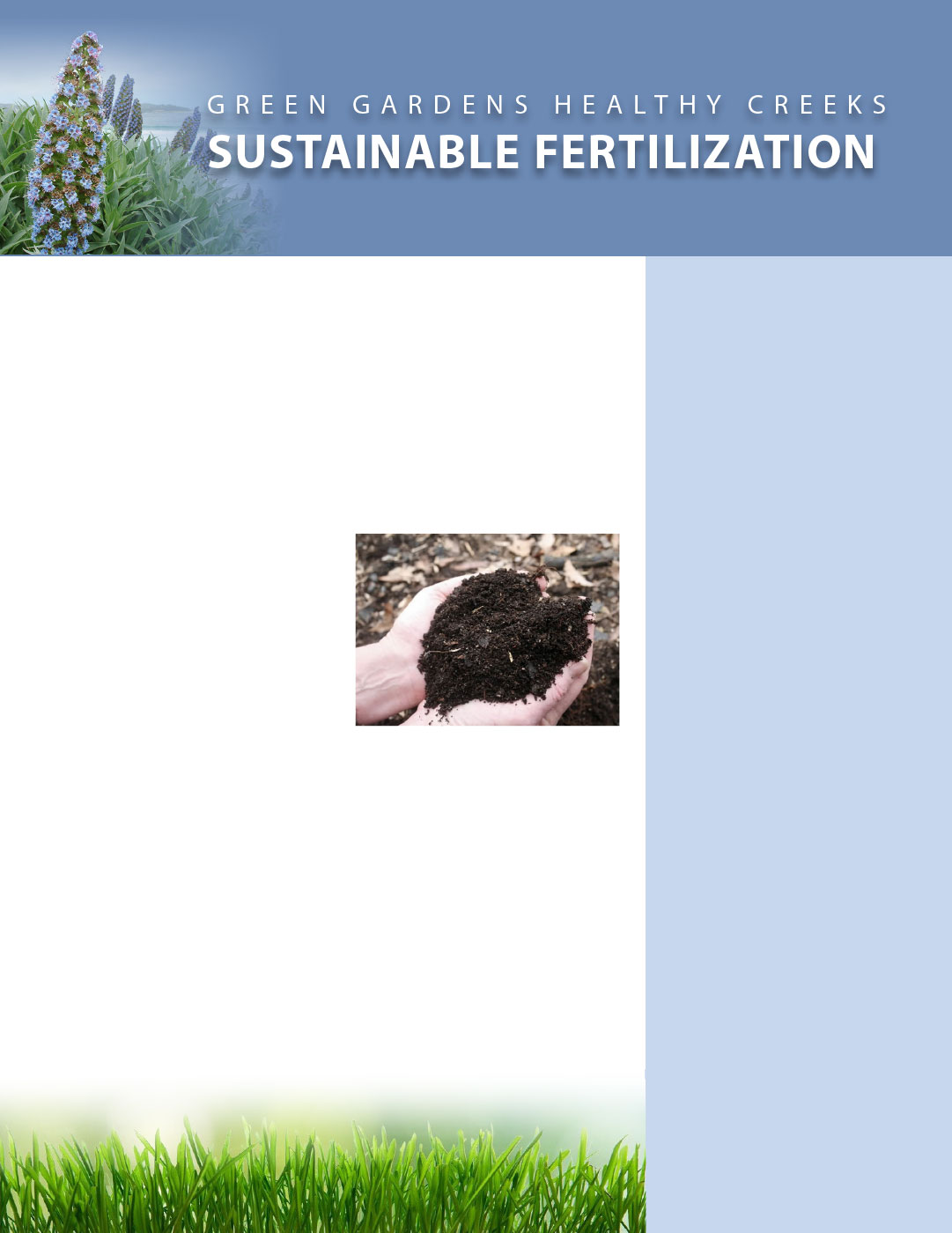
Follow Mother Nature
If you mulch heavily as recommended in the compost and mulch fact sheets you should not need traditional fertilization. Sustainable landscapes fertilize themselves as soil organisms break down and recycle the dropped leaves into nutrients. Your garden can use this process to maintain health and beauty without routine addition of fertilizer. Chemical fertilizer are to plants what candy is to children. It is a quick stimulant but does not provide long term nutrition.
Promote natural nutrient recycling by leaving grass clippings or leaves to decompose and feed the soil. This will not look unattractive to the eye if it is mixing in with existing mulch or spread compost. Lawn clippings and leaf fall on lawn areas can be collected and composted for future introduction into the garden. Many soil nutrient deficiencies can be remedied by applying quality compost or mulch.
Lawn and Fertilizers
The one place in your garden where the temptation to use chemical fertilizers is the greatest is the lawn area. Keeping it green is important to all home gardeners. A lawn is like a crop that you harvest every week. It is constantly drawing sustenance from the soil and at some point it must be replenished. The sustainable way to regenerate the soil of a lawn area is to spread a highly decomposed layer of compost or mulch over the grass and gently rake it into the lawn. Then it needs to be watered in. Allow it to grow extra tall and mow it extra tall for a few weeks thereafter so that you don’t vacuum the mulch back up with the lawn mower. Another method is to purchase a mower having mulching capabilities so that whatever you mow gets returned to the soil. A combination of the two is a probably a wise way to go.
In the Sustainable Landscape chemical fertilizers are not only unnecessary but actually harmful to the Eco-system. Concentrations of chemical fertilizers collect from runoff resulting from over watering. These slurry mixes combine with others from neighboring yards and find their way into local creeks, and water ways in acute concentrations poisoning lakes, rivers and the ocean. Sustainable landscaping requires natural fertilizers which are really just compost and mulch in different degrees of decomposition.
If You Must Fertilize, Select Wisely
Use a natural or organic fertilizer when needed. Organic fertilizers are made from naturally occurring minerals or from renewable, biological sources such as plants, animals, animal manures, or seaweed. Organic fertilizers are preferred because:
- They contain a wide range of macro and micro-nutrients.
- The nutrients are in a form that feeds soil life and improves soil structure.
- The soil can store the nutrients to make them available to plants as needed and prevent loss to runoff.
- The natural soil/nutrient relationship encourages healthy, balanced growth that is more resistant to pests and diseases.
The Pitfalls of Synthetic Fertilizers
Synthetic fertilizers are salt-based crystals or liquids made from non-renewable resources such as natural gas and petroleum. Most are quick release or fast acting. Besides producing unnecessary green waste and work for the gardener, this process has many other negative consequences:
- Salts can reduce natural soil fertility and harm soil structure.
- Fast plant growth can be weaker and less disease resistant.
- Frequent applications push fast growth, which then must be pruned or mowed.
- Fast-acting fertilizers are more likely to leach from the soil and run-off into storm drains, polluting our waterways.
- Excessive growth can require trimming with gas-powered equipment, creating air pollution.


